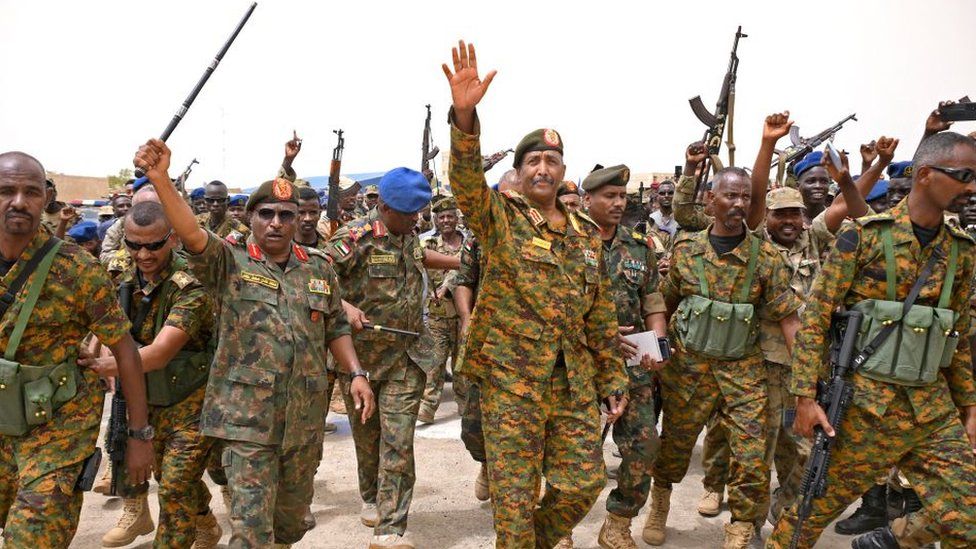-

-
-
Loading

Loading

Two rebel groups from Sudan's Darfur region have announced that they will join forces with the army in the country's civil war. The decision comes after the paramilitary Rapid Support Forces (RSF) made significant progress in Darfur, which has been marred by allegations of ethnic cleansing. Gibril Ibrahim, leader of one of the rebel groups, stated that their intention is to protect civilians from the RSF, which they accuse of burying people alive. Although the decision to align with the army was not an easy one, it took seven months of negotiations to reach an agreement. The relationship between the rebel group and the Sudanese army has been strained, as the army had killed Mr Ibrahim's brother, who was previously the leader of the group. The Justice and Equality Movement (Jem) and the Sudanese Liberation Movement (SLM) initially took up arms in 2003 due to grievances against the government's discrimination towards Darfur's black African communities. This led to the mobilization of Arab militias by the government, resulting in what has been referred to as the first genocide of the 21st century. These militias eventually transformed into the RSF, which has been engaged in conflict with the army since April, aiming to gain control over the country. The RSF has recently captured significant towns in Darfur, including Nyala, the second largest city in Sudan. Reports emerged last week of the RSF's alleged massacre of hundreds of individuals in El Geneina, the capital of West Darfur, although the RSF denies responsibility and attributes it to a tribal conflict. In a joint statement, Jem and SLM announced an end to their neutrality and a commitment to participate in military operations across all frontlines without hesitation. Mr Ibrahim has expressed concern about the RSF's advancements, fearing that Sudan may become divided. There are concerns that the war-torn western region may even establish its own government due to the ongoing instability and poverty.